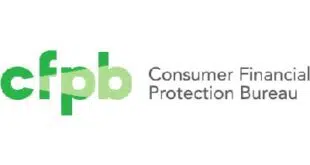Now that the Federal Reserve-sponsored Faster Payments Task Force has issued its final report calling for speedier payments everywhere in the United States by 2020, the really hard work can now begin, say some observers.
Payments cleared and settled in near real time has long been a goal of many payments players, and a number of countries around the world have already implemented structures to make that happen. But now, despite the deadline unveiled Friday by the task force after two years of deliberations, some experts are skeptical widely deployed, near-real-time payments can happen in the United States within three years.
“It’s hard to see how it’s going to happen, given there’s no mandate, and it’s unclear what the incentive is for financial institutions to adopt this [plan],” says Aaron McPherson, an independent payments analyst who has followed the faster-payments movement.
Indeed, the 320-member task force’s approach has been relatively hands-off. Its final report details the payments methods and capabilities of 16 providers evaluated by the consulting company McKinsey & Co., ranging from giants like The Clearing House and Fidelity National Information Services Inc. to small players like Mobile Money Corp. to distributed-ledger startups like Ripple Labs. But while the report includes McKinsey’s evaluations of each company’s solution, it steers clear of recommending one over another. Instead, it favors letting the market make that determination.
“By design, the task force did not pick a winner or best solution,” Sean Rodriguez, the Fed’s strategy leader for faster payments and chair of the task force. Rodriguez spoke Friday morning during a 30-minute presentation broadcast via the Web from the offices of the Federal Reserve Bank of Chicago.
Recognizing the work is far from done, the report also outlines 10 recommendations for steps that should be taken “as soon as possible” to meet that 2020 deadline. Among these is a call on the Fed to begin work on an always-on settlement system and a call for work groups to sketch out rules, standards, and “baseline” requirements, and to start on designing a directory to reach all endpoints. “The goal is a shiny new payment system,” said Rodriguez.
That new payment system will emerge stronger if it’s put together by cooperating parties without heavy-handed law or regulation, say some of the participants in the faster-payments movement. “It’s a market approach rather than a prescriptive approach,” said Jan Estep, chief executive of NACHA, during the Web broadcast. NACHA is the governing body for the automated clearing house.
The task force saw early on that a mandate wouldn’t work, task force member George Warfel tells Digital Transactions News. Warfel is general manager for fintech and payments strategy at Haddon Hill Group, a San Francisco-based consultancy, and author of the Payments 3.0 column for Digital Transactions magazine.
“That subject came in for thorough discussion in the early stages [of the task force],” he says. “The determination was, wouldn’t it be best if we could achieve what we needed without mandating it, and with a recognition that we are not Europe, telling people what they can and can’t do.”
But observers like McPherson have their doubts, especially when it comes to meeting that ambitious deadline. Getting all banks, processors, merchants, and other players on board that quickly will be a challenge, he says. “If there were a mandate, maybe we’d have ubiquity by 2020,” he adds.
While some might look to the Fed to exercise such authority, it hasn’t been inclined to take that direction so far. And McPherson points out it lacks statutory authority to mandate faster payments. It would have to seek that authority from Congress.
Pricing incentives might help, as well, McPherson says. But Warfel says the task force considered that approach, as well, as it was hammering out its plan. “No one [on the task force] felt that, if there isn’t pricing in here, it won’t work,” he says. Here again, he says, the group deferred to the market. “People who care if their payment gets through fast will pay,” he says. “People who don’t care will be glad they weren’t charged.”





